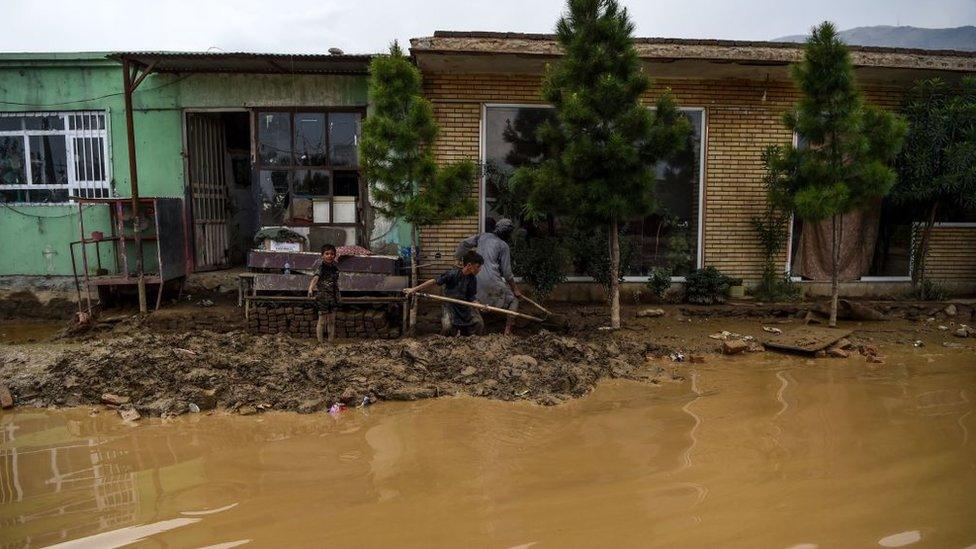Afghanistan Taliban: Flash flooding kills dozens in remote province
- Published

Villagers use shovels to clear mud after flash floods killed at least 162 people in Afghanistan in August 2020 (file picture)
People in a remote part of eastern Afghanistan were buried under mud and debris when heavy rain brought flash floods during the night.
Children and women are said to be among the victims in Kamdesh, with at least 60 people dead and dozens more missing, and many homes destroyed.
The disaster zone is held by Taliban militants fighting the government.
Talks are being held to try to let rescue teams enter the area which is hard to reach in normal times.
Afghan officials gave a death toll of 60 but the Taliban say 150 people died in the flooding, the Associated Press news agency reports, external.
An engineer working for the province of Nuristan, where Kamdesh is located, told an Afghan journalist the final toll could exceed 200, external.
The Taliban say they have sent their own rescue crews to help, promising relief funds worth about $62,000 (£53,000), AP reports.
But it is not clear how well equipped they are to deal with a disaster on such a scale.
They have been fighting government forces across the country, gaining territory since US-led foreign troops left.
Flash floods happen when rain falls so heavily that normal drainage cannot cope.
Torrential rain and flooding kill people every year in Afghanistan, where badly built houses in isolated rural areas are particularly vulnerable.
Many factors contribute to flooding, but a warming atmosphere caused by climate change makes extreme rainfall more likely.
The world has already warmed by about 1.2C since the industrial era began and temperatures will keep rising unless governments around the world make steep cuts to emissions.


The BBC's Yogita Limaye travelled to Afghanistan's Kunduz province, most of which has fallen to the Taliban